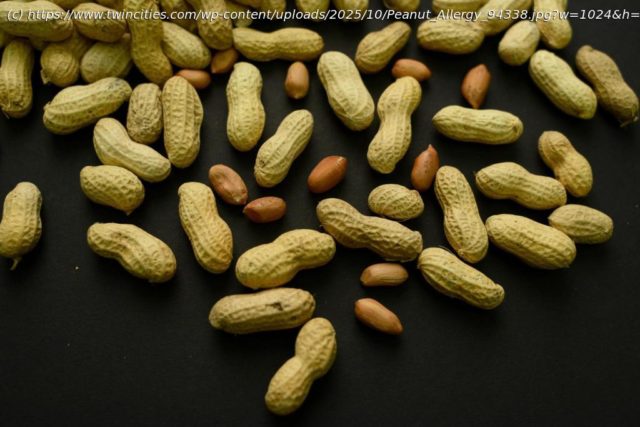A study that upended medical practice by recommending feeding babies peanut products early to prevent allergies has had a big effect in the real world.
A decade after a landmark study proved that feeding peanut products to young babies could prevent development of life-threatening allergies, new research finds the change has made a big difference in the real world.
Peanut allergies began to decline in the U.S. after guidance first issued in 2015 upended medical practice by recommending introducing the allergen to infants starting as early as 4 months. The rate of peanut allergies in children ages 0 to 3 fell by more than 27% after guidance for high-risk kids was first issued in 2015, and by more than 40% after the recommendations were expanded in 2017.
“That’s a remarkable thing, right?” said Dr. David Hill, an allergist and researcher at Children’s Hospital of Philadelphia, and author of a study published Monday in the medical journal Pediatrics. Hill and colleagues analyzed electronic health records from dozens of pediatric practices to track diagnoses of food allergies in young children before, during and after the guidelines were issued.
“I can actually come to you today and say there are less kids with food allergy today than there would have been if we hadn’t implemented this public health effort,” he added.
About 60,000 children have avoided food allergies since 2015, including 40,000 children who otherwise would have developed peanut allergies. Still, about 8% of children are affected by food allergies, including more than 2% with a peanut allergy.
Peanut allergy is caused when the body’s immune system mistakenly identifies proteins in peanuts as harmful and releases chemicals that trigger allergic symptoms, including hives, respiratory symptoms and, sometimes, life-threatening anaphylaxis.
Домой
United States
USA — mix Advice to feed babies peanuts early and often helped thousands of kids...






